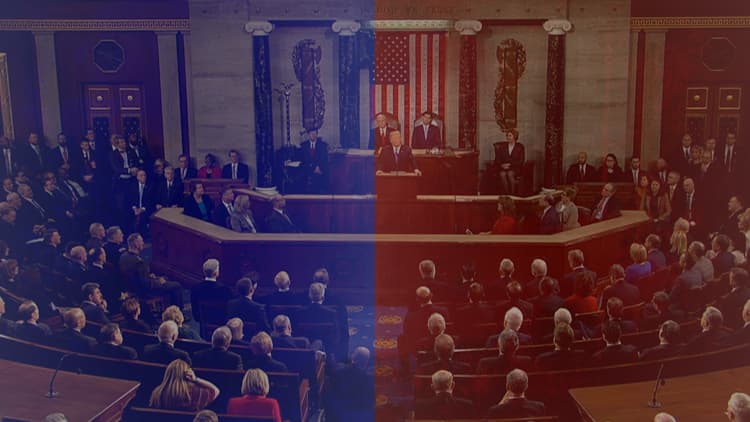Tuesday's U.S. midterm elections are poised to create significant changes for how President Donald Trump can accomplish his domestic goals, but the results may not mean much for the country's trade policies.
Trump's 'America First' philosophy is unlikely to drastically deviate from its current course even with Democrats winning the House of Representatives, strategists said.
NBC News projected late on Tuesday that Democrats had taken a majority in the House while Republicans had retained control of the Senate. Both chambers make up Congress — the country's principal decision-making body — and approval from each is required to pass bills into law.

The as-expected outcome is set to challenge Trump on several areas such as military spending and his foreign business dealings, making it difficult for the commander-in-chief to pass major legislation. But on trade policy, one of the areas most relevant for the international community, Trump enjoys executive power and can set the terms regardless of whether Congress is divided or not.
That's because "Congress doesn't have much of an ability to control trade policy," analysts at RBC Capital Markets wrote in a recent note. Rather, "the Oval Office has wide reaching powers to act unilaterally," which means the president is likely to "keep pushing his trade agenda," they continued.
What that means for China, the EU and others
"On trade, it's going to be the same, if not worse, in terms of U.S.-China," Steven Okun, senior advisor at McLarty Associates, told CNBC as election results were trickling in.
Both Democrats and Republicans are believed to support a tougher stance on Chinese trade and intellectual property practices. As a result, the president may enjoy bipartisan support as he pushes for Beijing to reduce the bilateral deficit.
"There is less middle ground for practical trade policies than has been the case historically," David Adelman, former U.S. ambassador to Singapore and adjunct professor at New York University told CNBC before Tuesday's outcome. "Partisan Democrats traditionally have been the more protectionist party while Trump Republicans are extremely hawkish with regard to everything relating to China."

As a result, Adelman said the midterms would not impact Trump's protectionist policies. Only if the American economy starts to suffer from the country's tariff battles would Congress then take the White House to task, Adelman added.
However, if Trump were to re-introduce tariffs on the European Union or withdraw his country from the World Trade Organization, Democrats could conceivably intervene.
"While trade is not necessarily a critical issue for the Democrats, it is unlikely they will support a trade war with traditional allies like the E.U," economists at ING said in a note published before Tuesday's result.
"Withdrawal from the WTO is unlikely to get a lot of support from Democrats, so overall Congress is likely to put up more resistance regarding trade policy than it did previously," they continued.

